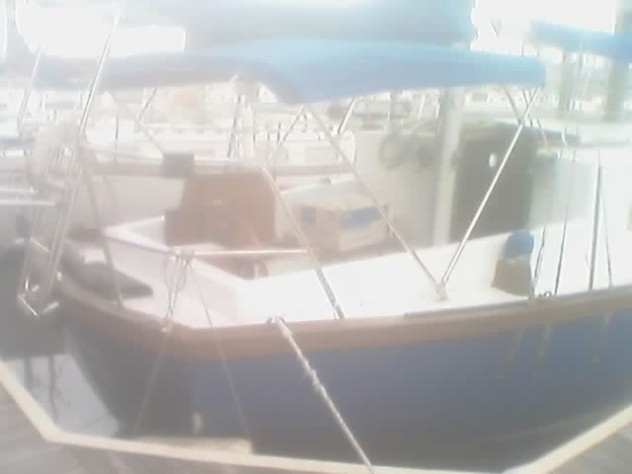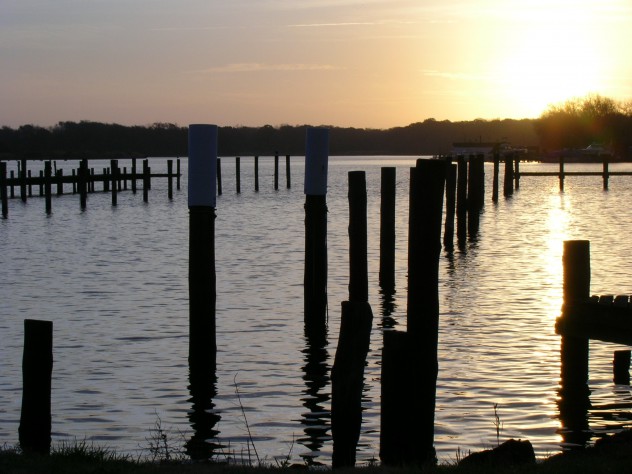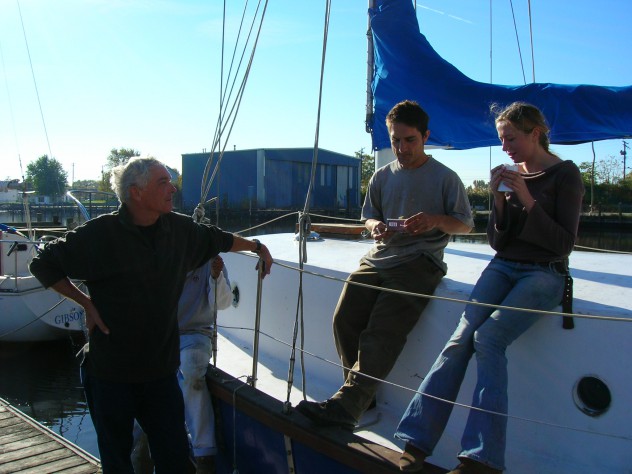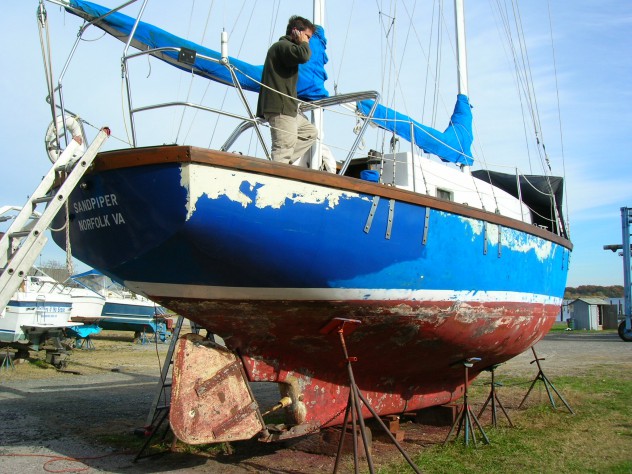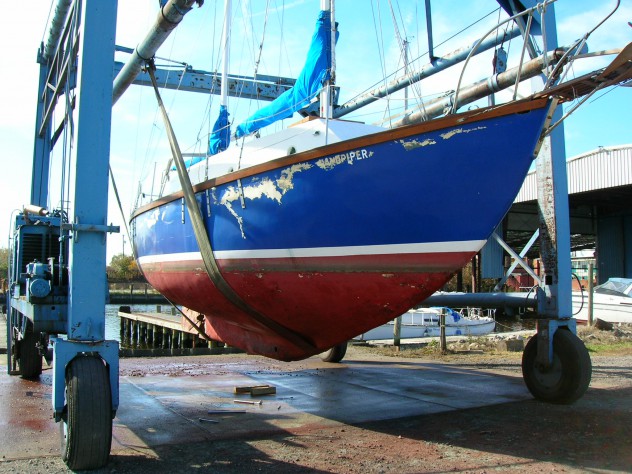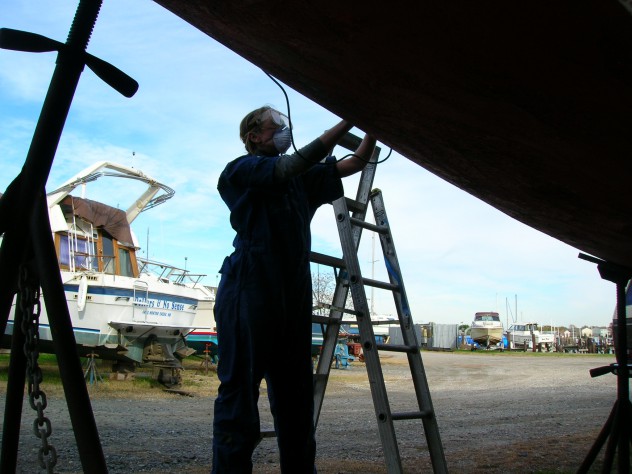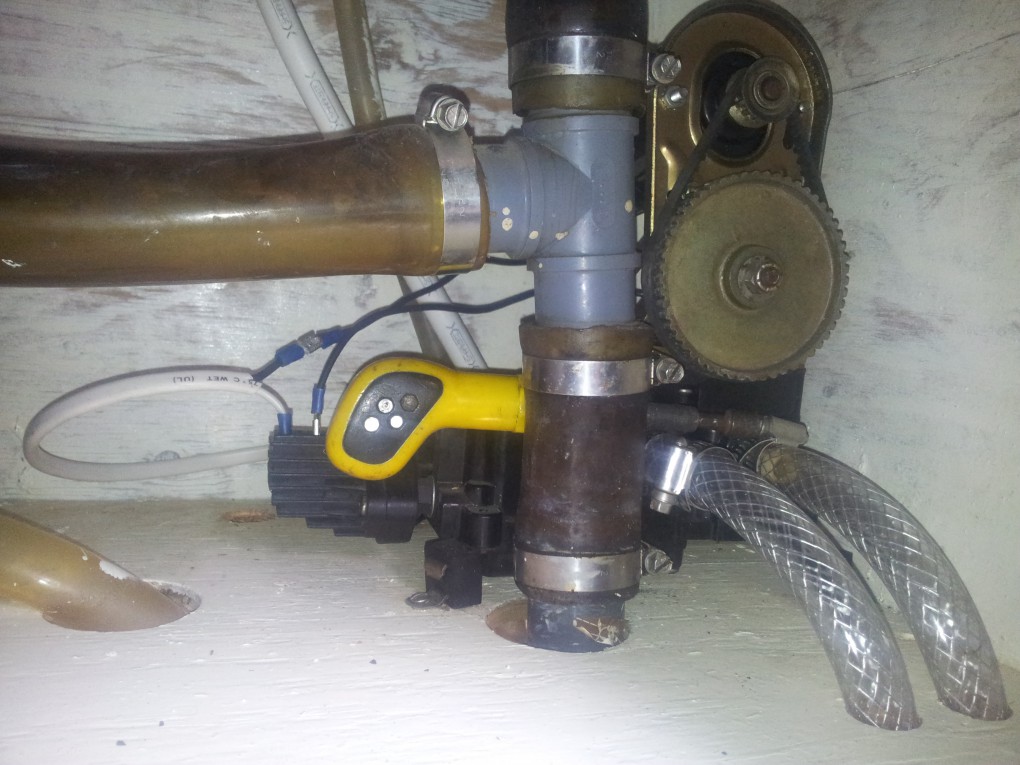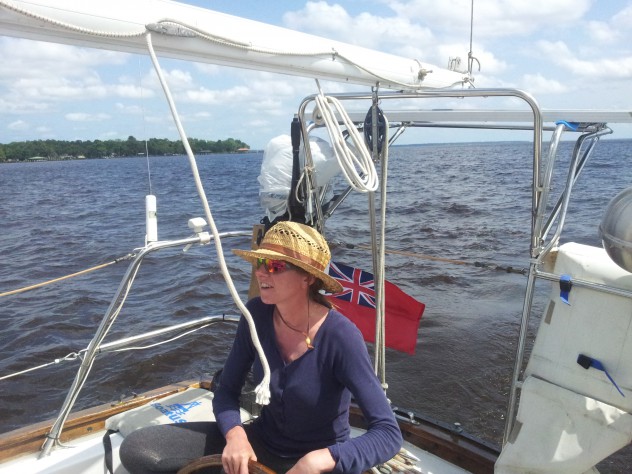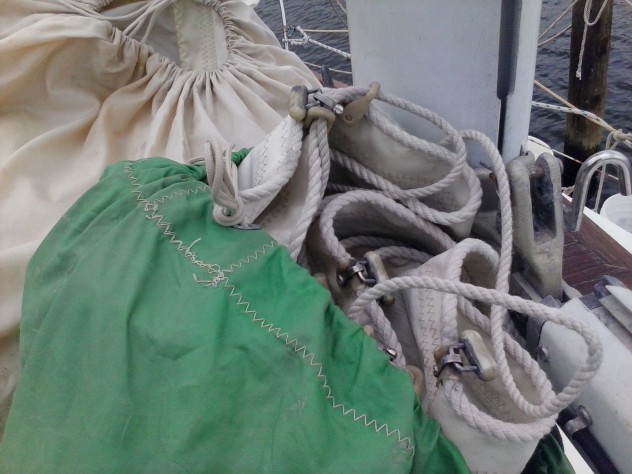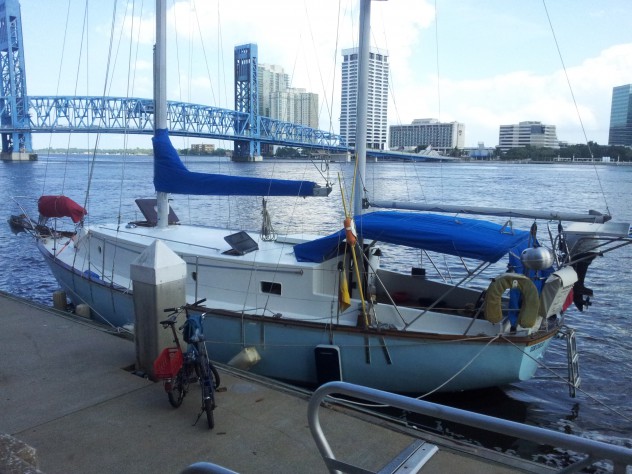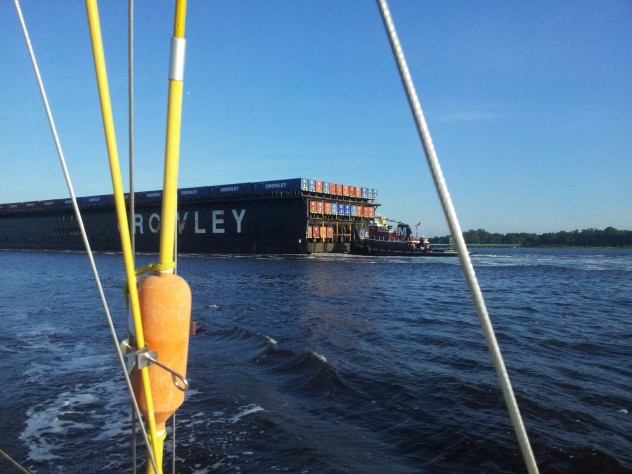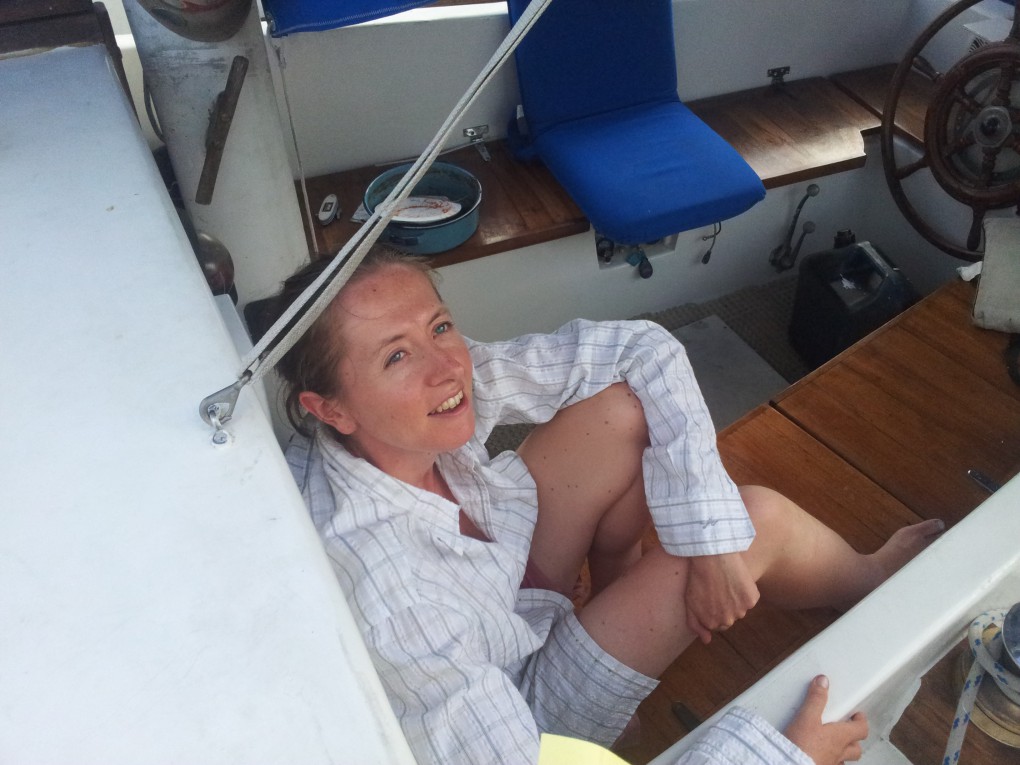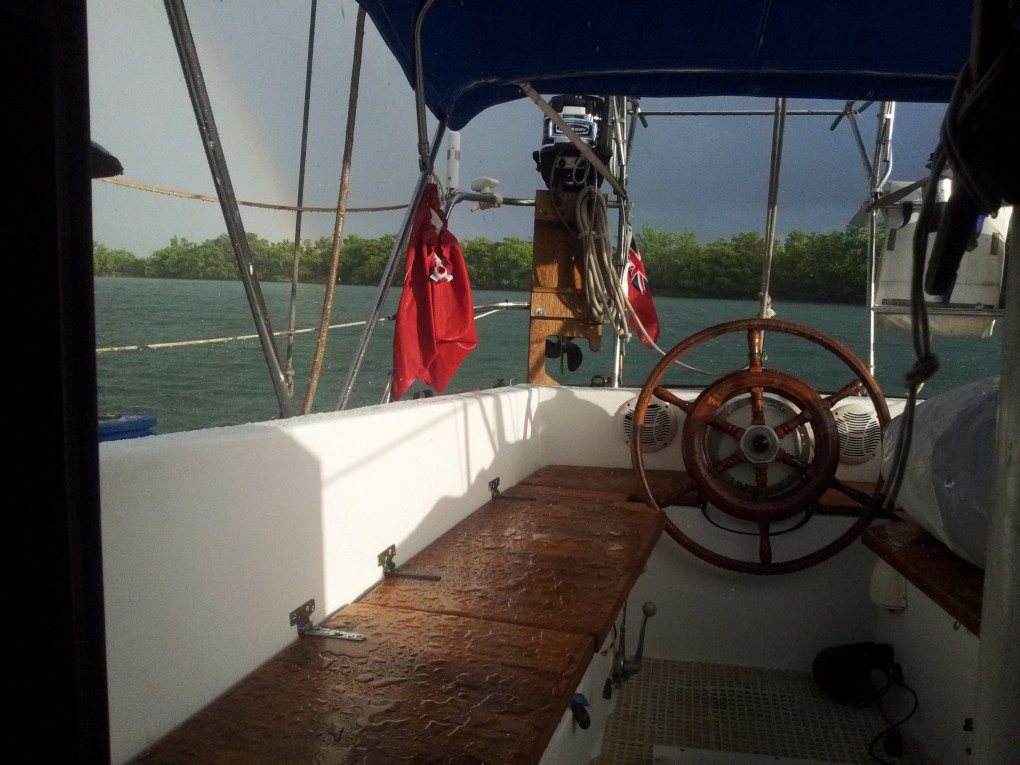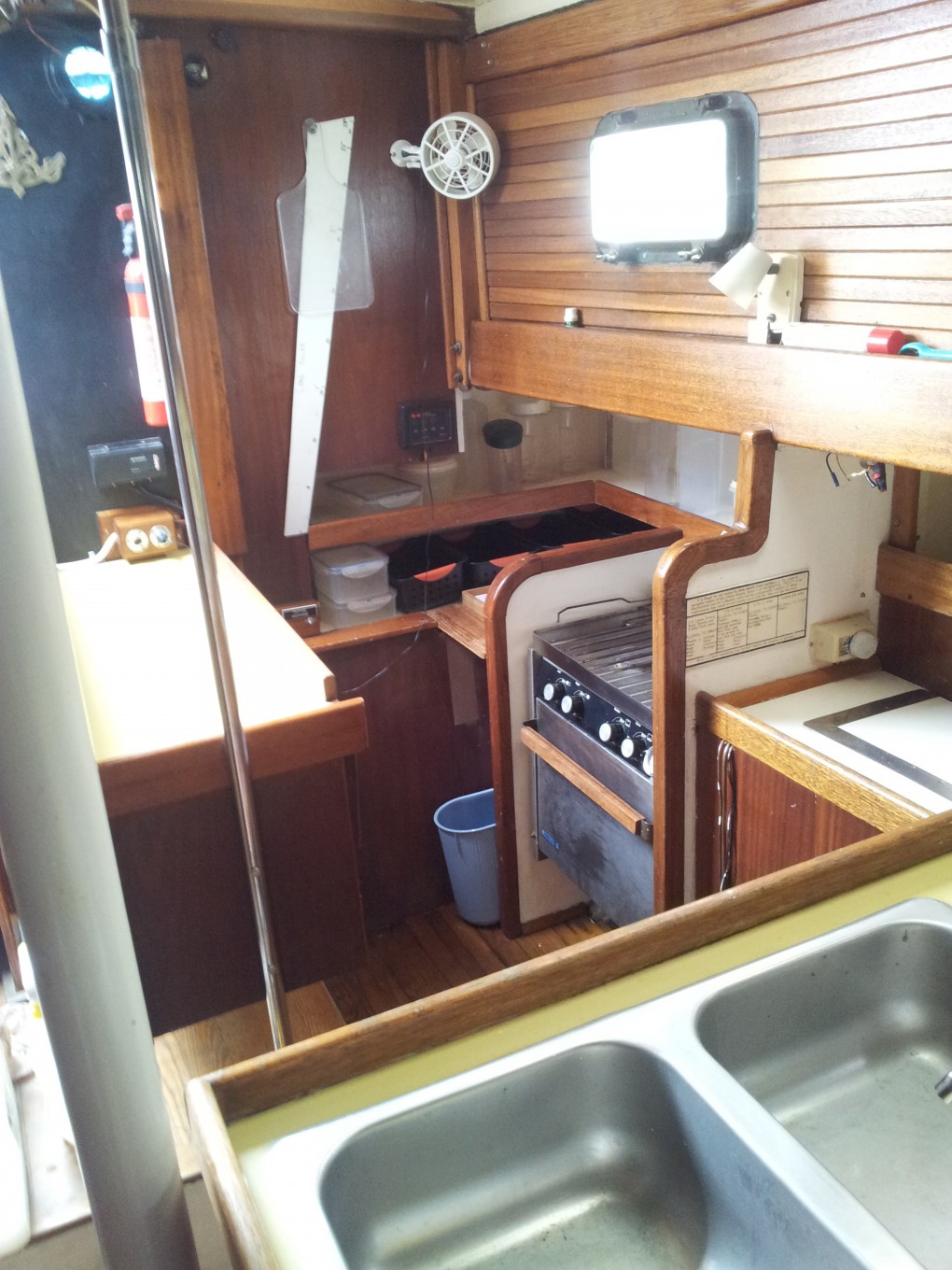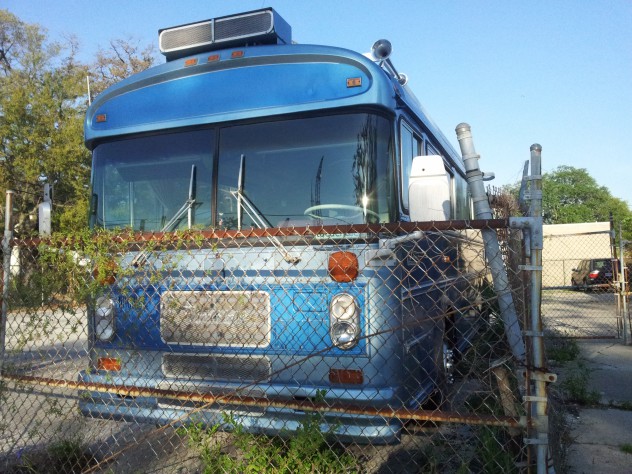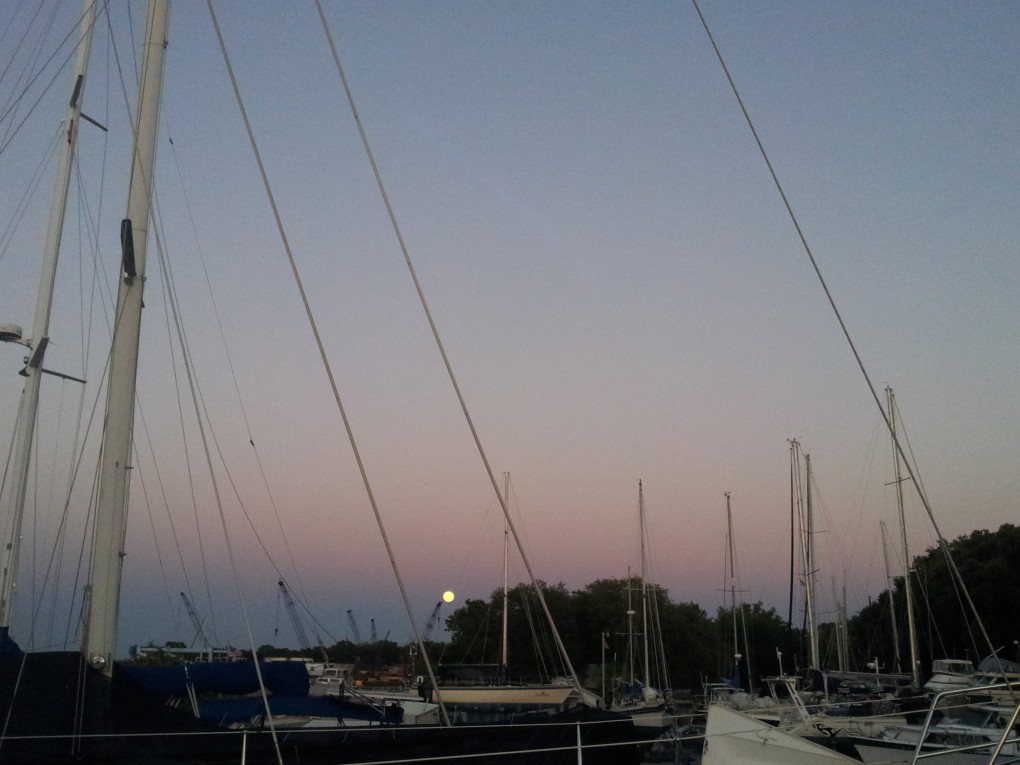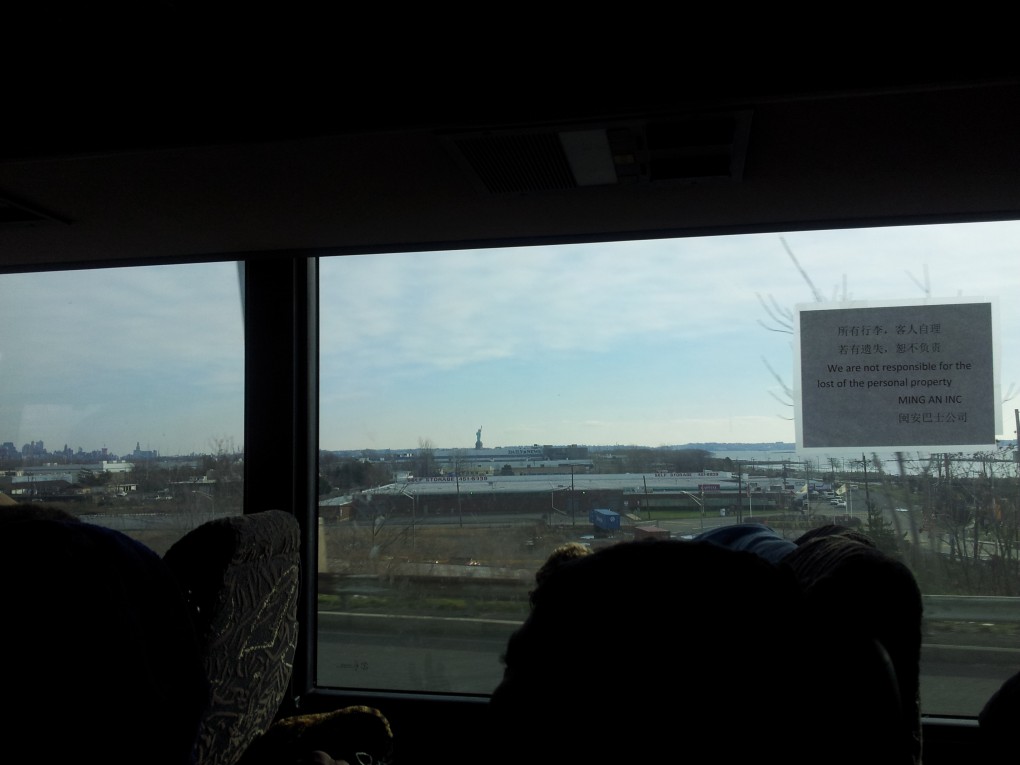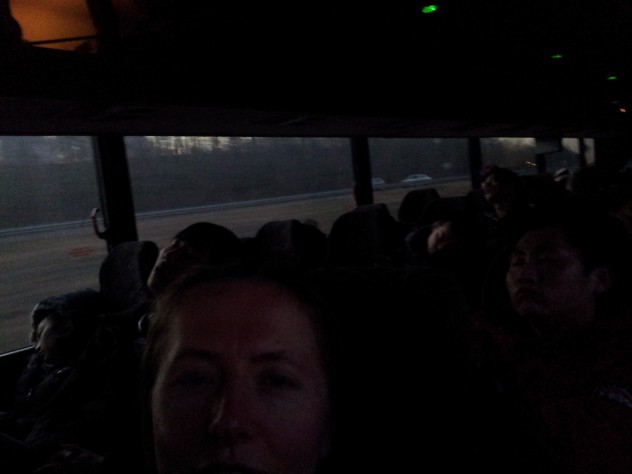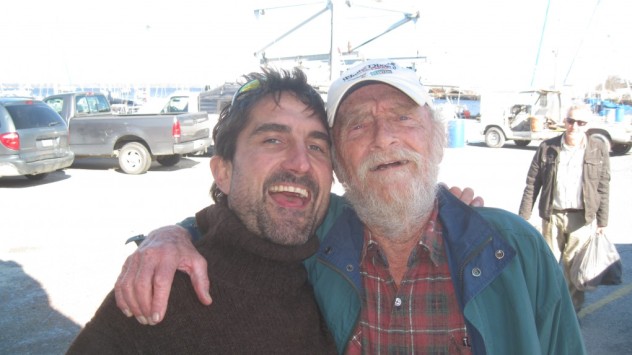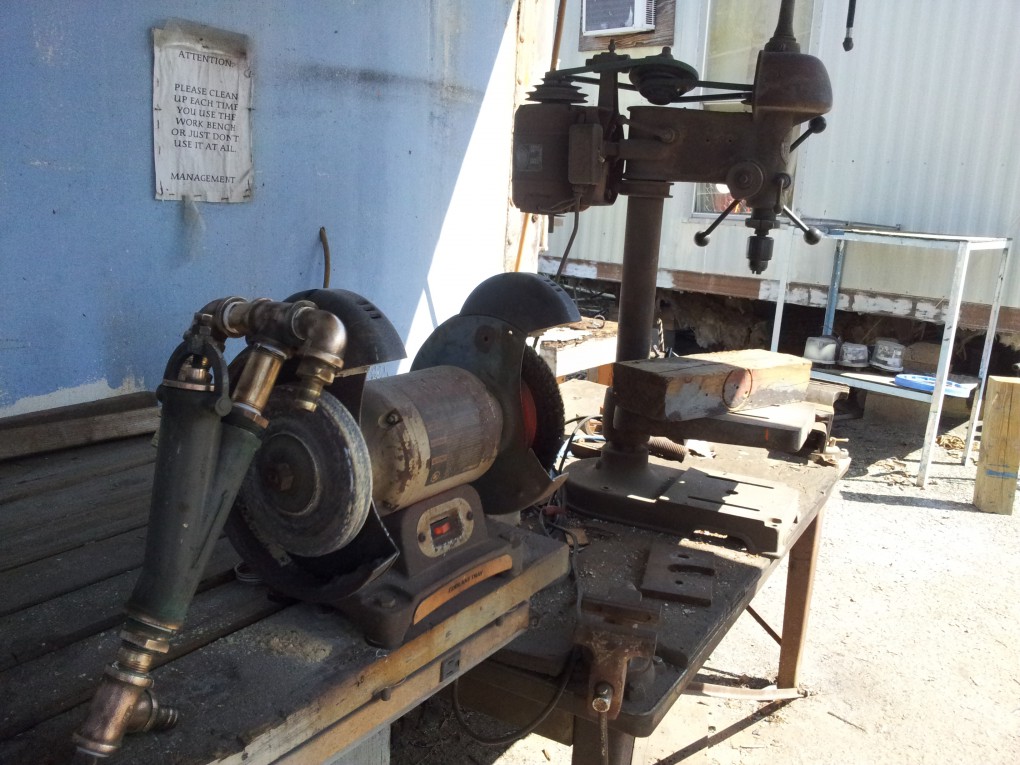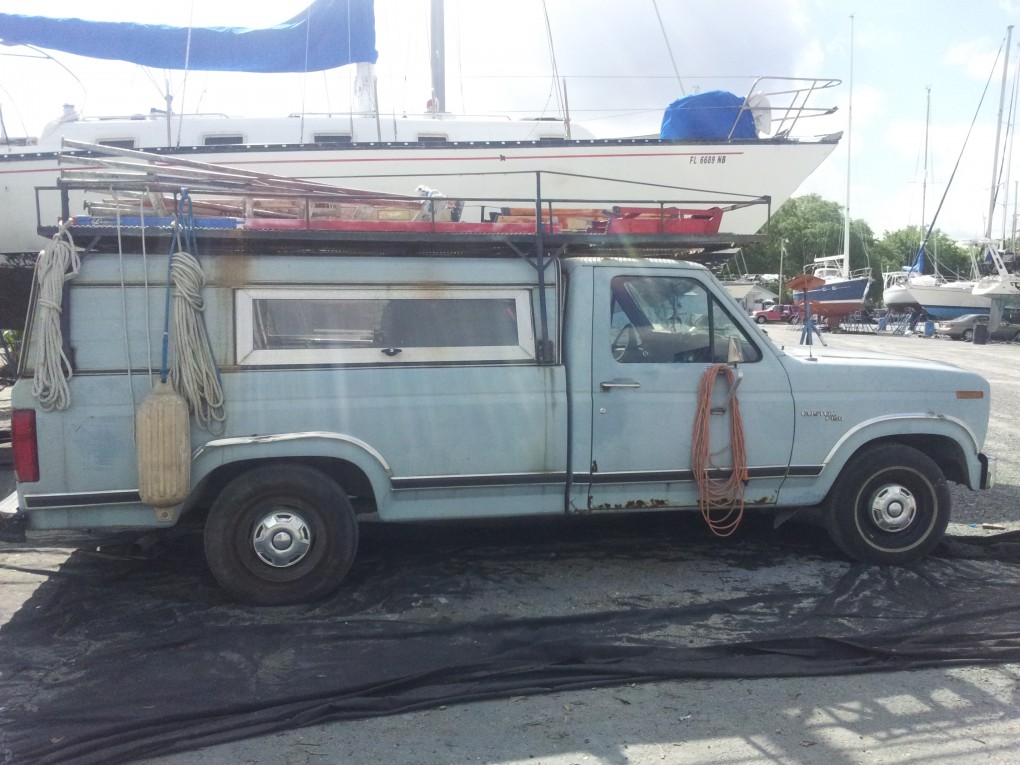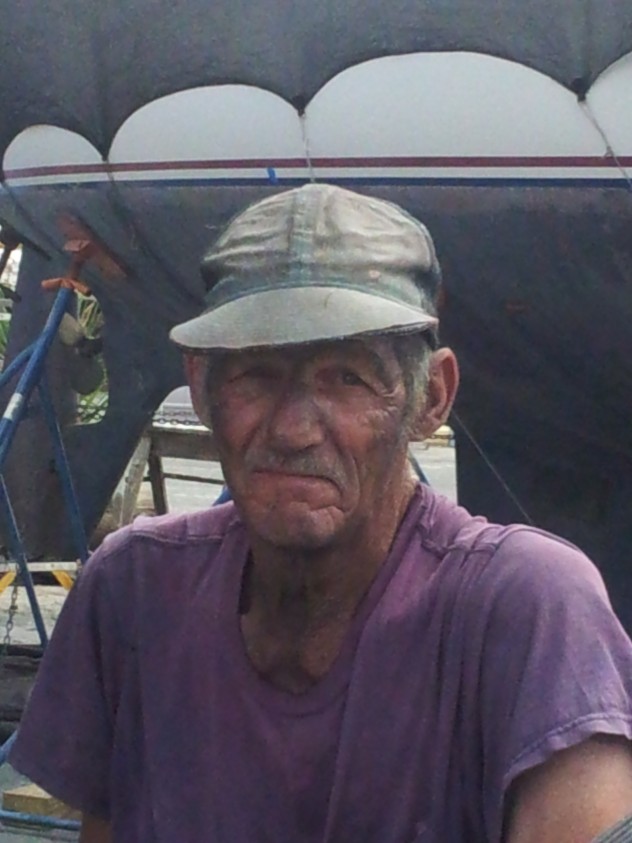Boat. Acronym: B.O.A.T. : Break Out Another Thousand
Boatyard Dictionary of Acronyms
They say that the happiest day in a man’s life are the day he buys a boat, and the day he sells the boat. Here is how I felt when I bought my boat.
It is May 2004. I have just bought a boat. The office is underneath a larger building next to the wooden boardwalk of the floating dock. It is not far to walk down the dock to my new boat. Jake is a casual, easy-going fellow, not so much older than me, with whom I have been negotiating for a few hours. The book value of the boat is $40,000. I am exhausted from my scouring of the US East Coast. I have to get a boat today. My money is running out; I have done a deal with my conscience that I must spend this ‘dirty’ money on something ethical. Boats are ethical. We all need to take to the water. The sea is a place where humans take responsibility for their actions. They learn to live without guarantees. It makes them better people. It frees them from consuming. It stops them from consuming. My money is earned from Rupert Murdoch’s SKY1. It is burning a hole in my pocket. I have been from San Diego to New Orleans; Daytona Beach to New England. I have found the most boat for the least money. I have looked at my choice of boats, and have been studying the options over coffee in the Daily Grind Cafe. Boats in New York, South Carolina and beyond. They look something like this:
Bargain Seaworthy Work Needed Slip Price Resale Comments
| Dufour 29.5 Any Offer, roller furling Long Island 4,500 Also Catalina needs keelbolts $5000 | Good, solid hull. Couldn’t really judge deck but seemed good. Rig can be examined. Will be strongly made at least. | Will need bottom paint, keel needs looking at (not serious), stove, equipment, mainsheet traveller could be customised. | Expensive. Would have to be dropped in and moved from NY to ?Newport. | Not bad in Europe Double ish | Would have to commit to it for two or three months possibly. No v berth. Racer/cruiser. Liveaboard?? |
| Columbia 9.6 32/31.6 Probably will take 8,000 | Seems big, beautiful and seaworthy. Mixed opinions about Columbias – love/hate Keel cracked not serious. Large saloon. New electronics | Keel and bottom paint. Deck soft spot. Various cracks in gelcoat. Bad year for blisters. Needs GPS, roller furling?, batteries etc. has been neglected. | As above. | Possible charters. Very good resale – triple. | Feels like the prettiest boat I’ve seen. (shape). Liveaboard. |
| Newport 30 12,500 in Wickford by roadside | Too light, I think. Well equipped. Coastal cruiser. | Hull paint a bit old. Apart from that really tidy. Engine to go back in. | Could be dropped in and taken to Newport easily and probably free. | 30% profit. | Good, but not what I’m looking for. |
| Concrete engineered 35 ketch. Any offers. Huge. Could kit it out for world cruising. | Very seaworthy. Drop keel. Odd boat, has never been blue water. Strong rig. Needs some modifying?? | Mainsheet traveller. Foresail sheet cars. Could do with hatches in cabin top. Needs GPS etc, but would have money over for that. | Easy and cheap slip. Possible work in Baltimore. Not well payed but good. New life possibilities. | Possibly twice, possibly more. | Not the beautiful boat I was looking for, or I would jump on it. |
This is the one I choose:
I walk back to my new boat. The paint is peeling, but that’s just paint. People don’t realise what I can do, how fast I can work. I will fix this boat. The stainless steel wires of the rigging all look strong and new. They are thirty years old, but they don’t look it. The engine is old, and I have never heard of it. But the inside has lots of decent-looking woodwork in it. The bronze portholes are small. She is a seaworthy boat. She was built by a NASA rocket scientist.
I reckon I can get her out of Baltimore in six months. Even less, if I find some crew to come with me. She is shabby, but she’ll sail, I reckon. When I get back home, everything changes. Three years later, we, Dorry and I, are finally ready to leave, in a whole new context. Together.
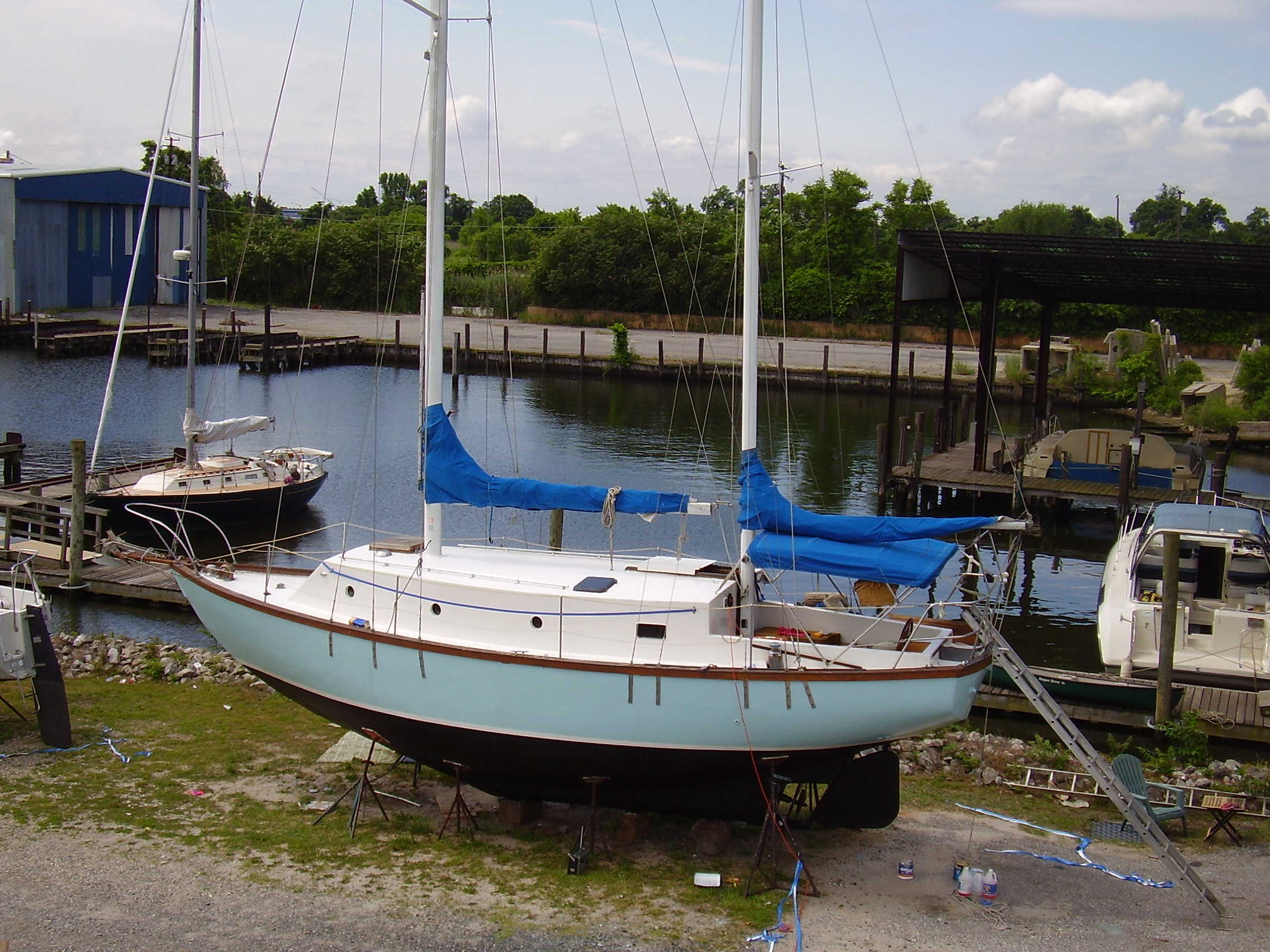
I look at the above now. What a fool. A fool for love, a fool for the sea, a fool for my principles. But a fool. Nothing like a deal with your conscience to change your life… It is just as I leave that I’m casually talking on the dock with the first of many nay-sayers who I meet on that same dock many years and sea miles later. ‘You know what it stands for?’ We’re on the dock. I’m pressure-washing the fuel tanks which I have painstakingly managed to pull out from under the cockpit floor, pushing them past the sharp corners of the engine without scratching the zinc coating off them. I am covered in the filthy backlash of the pressure-washed fuel, staring at the light coming in through pin-holes in the fuel tank. I am morose. ‘What?’ ‘Boat’, says the onlooker, sympathetically, or is it smugly?’ ‘No’, I say with resignation. ‘Break Out Another Thousand. B. O. A. T.
I quietly hate him. But I have another thousand. One more. But he doesn’t know what I can do. He hasn’t seen me move mountains. I will eventually move mountains, but I have a lot to learn.
We wake up moving in a dusty, dimly-lit cabin. It smells of teak oil and outdoor pursuits. The bed cushions are hard-edged, the covers a hideous yellow nylon. They are thin. There is a pounding sound. Somebody is beating a huge metal object outside our cabin. Blinking, I open the hatch, stick my head out, and I am looking into the eyes of a businessman drinking from a paper coffee cup, twenty feet away across the water . He is studying me absent-mindedly, intently. In five minutes he will be out of the fresh morning and in his leather air-conditioned office chair. Perhaps he will still see me through mirrored glass from high above. I crane my head around towards the noise. A huge pile driver is smashing metal columns into the Chesapeake bedrock of Baltimore’s foundations. This has been going on for three days. We haven’t caught up on our jetlag, and things are feeling desperate. People are friendly, but seem to ‘zone out’ when we talk of getting the boat out of the marina and into a boatyard where we can work on her.
Living Classrooms Foundation: Working Amongst the Disadvantaged of Baltimore
We are starting to argue about getting under eachother’s feet, and which of the hundreds of jobs to engage on first. Dorry goes out after some bickering. I pull out my rudimentary toolkit and carry on trying to figure out how the engine oil filter works. I am up to my elbows in the governor of our old Italian fishing boat engine. I have never dared to take a governor apart in a diesel engine before, but I have no choice. The handbook is in Italian. There is no information, online or elsewhere, on this engine. A google search returns no matches for the maker. Not one. But the engine won’t run; the oil needs changing as part of the project. Dorry hates it here. We both hate it. When she comes back, I have fitted the stereo, and put on a favourite CD. The sudden invasion of something gentle which we actually like, amongst all the misery, makes us both burst into surprised tears. A big hug. We WILL get the boat out.
Cormorants perch on pilings in the city, and mussels squeak and crack when the small tide subsides. At night, the fish loom out of the water around the rudder of the boat. I imagine a grappling at the sharp shells by a drunken overweight hand, trying to claw its way back from the depths. But I will not think of it. The moon is waxing, gibbous, over Dominos sugar factory, as a freighter loads its hold. Across the rippling black water is the Rusty Scupper Dock and Restaurant. Baltimore.
Two days later, we leave the slightly hostile, maddeningly noise-polluted dock in the Inner Harbour of Baltimore Sea Port, for Historic but run-down Dundalk, where we will ‘haul out’ the boat. What will it be like? Will it be irretrievable? It has been in the water six years, with no care. We will ask a man to lift her out of the water with his crane, after our first voyage of seven miles. Not, however, before we have met Matthew, who will stay with us, sometimes watching from afar, but through thick and thin, for the next ten years. There is a knock on the coach-roof. I wake up startled, sunlight flooding in through a round porthole. I am tired. What time is it? We are at the boatyard, tied-up to the dock by the ‘Travel Lift’. Today we are ‘hauling-out’. But it is early. Not yet eight. In fact, my watch says seven o’clock. Are we in the wrong place? I slide back the companionway hatch, and am greeted by a small latino guy. Pablo, as I will find out. A fine-looking grey-haired man in a baseball cap is looking around the boat from the dock. This must be Bill. Thankfully, Matthew, in the boat next to us, appears out of his hatch before I get a word in. ‘Good Morning’, he says to Bill. I struggle up out of my sleepy boat into the cockpit and introduce myself. ‘Ah yes, The Brits’. I don’t know what this means, but I am faced with a gently spoken tall grey-haired man, with a lilting North Carolina accent, who ends up, over the next few years, taking me to Nascar Stock-Car races, explaining how it was originated from ‘build-your-own’ jallopy races in the backwoods of his homeland, spending Thanksgiving with him, being given access to amazing discounts via his accounts, Dorry being danced-through Zydeco tutorials in his office, and generally being helped through those first desolate years of keel to mast restoration.
A few days later, a photo finds me standing on the deck, having worn out grinding discs, trying to cut-back our hull for repainting.
I am desperately trying to find a way to sand-blast my boat without damaging it, until Bill comes up with a solution. And from here on in he is one of Sandpiper’s greatest allies. Quietly, and imperceptibly too, he starts to believe in us. He is, maybe, the first. Insert Photo Our first Haul-Out I have never hauled a boat out before. But now is not the time to say this. Bill and Pablo are running the straps unde the hull. They are massive webbing strops which hang from the booms of the travellift frame and drop into the invisible water either side of the boat hull. I don’t know if they are in the right place. One photo I have gives an idea of the hull-shape. It is a ‘sink or swim moment. If he drops the boat or bends anything, I have no idea how I will fix it. The boat could come out of the water and be a rusted mess. It could be that I have to pay thirty thousand dollars to dispose of the hull of a disasterous liability. She looks solid, and I have surveyed her meticulously from the inside. But who knows what will be revealed once she is in the open air? Bill reassures me that he has a guessing technique which always works. Matthew reassures me that she is ‘bulletproof’. The travel-lift engine revs, and the booms start to lift, making the strops tight around her bilges. Suddenly I realise she is coming up. I can see her hull below the waterline. She is shiny. A bit green. A lot green. Barnacles are on her, as well as growth like moss. Her rudder is big and thick. The stainless steel strips holding it in are big. The propeller is starting to show. It seems tiny and archaeological as it comes up out of the water. A distinctive shape, but all the wrong material. It looks like stone.
Then the shoe of the rudder post, at the end of the keel-skeg. It is massively thick. It is bulletproof. This will save me in the future., but I don’t know this yet. The big issue is the centreboard, but as the boat comes out, like the raising of the Titanic; the disinterment of some relic, I realise that six years in the water doesn’t seem to have done any real damage to this perfectly-rounded hull, and its overbuilt extensions. No paint, in places, but not a hint of rust or damage, The shell is completely in-tact. She’s a keeper.
My joy at her soundness is tempered by an overall feeling and understanding of the size of the task. Matthew, my friend, has his own concerns. His own boat has some blisters in the hull, which he will have to work on. We are two islands in our thoughts. Neither of us have the capacity right now to support the other. Slowly, as I try to sand the paint off, scared of cutting through the cement into steel rods, and realise how this hull is going to be a lot of work, I start to lapse into the ‘hunker-down, war-zone’ mentality. This will be a big job. And Dorry is not very confident. I feel that I am carrying the project, but realise soon that she is carrying me…
In 2006, we finally set off. Here is the log.
